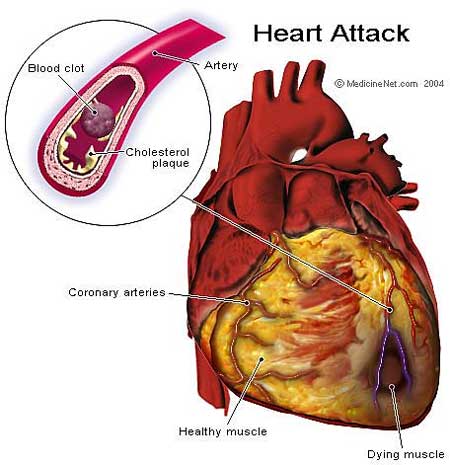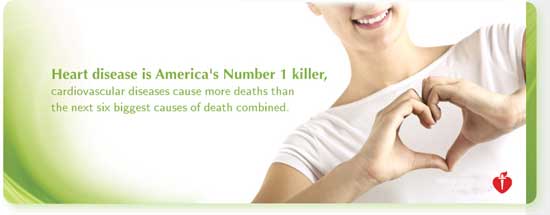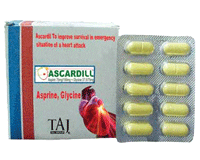|
|
 Composition
Composition
Each 75 mg tablets contain
Aspirin ………..75 mg
Glycine ……..37.5 mg
Each 150 mg tablets contain
Aspirin ………..150 mg
Glycine ……......75 mg

 Indication
Indication
Ascardil® belongs to a group of medicines called non-steroidal
anti-inflammatory drugs (NSAIDs). It works by blocking the action
of a substance in the body called cyclo-oxygenase.
High doses of aspirin prevent the production of prostaglandins.
Prostaglandins are produced in response to injury or certain
diseases and would otherwise go on to cause pain, swelling and
inflammation.
Aspirin in low doses, eg 75-100mg, does not have this effect and
is used instead as an anti-clotting or blood-thinning agent. Low
doses of aspirin prevent the production of thromboxane by blood
cells called platelets.
Ascardil® is used in the emergency situation of a heart attack.
Anyone who has the symptoms of a heart attack (chest pain,
possibly radiating towards the arm or neck, shortness of breath)
should take one aspirin tablet as soon as possible, as this has
been shown to increase the chances of surviving a heart attack.
This is because the aspirin prevents the blood clot that is
blocking the supply of blood to the heart from growing any bigger.
 Use
Use
Ascardil® To improve survival in emergency situation of a heart
attack.
 Warning
Warning
Children under 16 years of age should not take aspirin, unless on
the advice of a doctor.
 Use with caution in
Use with caution in
* Elderly people.
* Decreased kidney function.
* Decreased liver function.
* Dehydration.
* Asthma.
* History of allergies.
 Side effects
Side effects
Medicines and their possible side effects can affect individual
people in different ways. The following are some of the side
effects that are known to be associated with this medicine.
Indigestion (dyspepsia).
Nausea.
Stomach or intestinal discomfort.
Sensation of ringing, or other noise in the ears (tinnitus).
Worsening of asthma.
Increased bleeding time.
Ulceration or bleeding in the stomach or intestines.
Blood disorders.
 Presentation
Presentation
Ascardil® 75mg 10 tablet strip.
Ascardil® 150mg 10 tablet strip.
|






